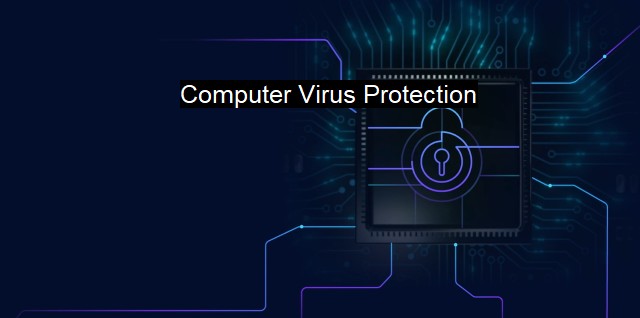What is Computer Virus Protection?
Shielding Your Digital Assets: The Role of Antivirus Software in the Evolution of Cybersecurity Protection
Computer virus protection is a critical aspect of cybersecurity that involves safeguarding computers and digital systems from harmful digital infections, unauthorised accesses, and possible data loss. In broader terms, computer virus protection includes a range of techniques and tools used to detect, prevent, and remove malicious software (also known as “malware”) such as computer viruses, worms, Trojan horses, ransomware, spyware, adware, and so on.A virus, in the context of computers, is a code that inserts itself into a computer or computer program and has the ability to replicate. A computer virus operates by duplicating itself and infecting a computer without the owner's knowledge or consent. Viruses can infect all types of digital files and cause various damages such as corrupt data, slow down system performance, log keystrokes, steal sensitive information, or even cause a system to crash.
To protect computers from such threats, numerous protection strategies have been developed. One of the familiar and most used methods is the use of antivirus software. Antivirus software is a program or set of programs engineered to prevent, search for, detect, and remove software viruses and other malicious software. Foundational antivirus software functions by matching detected viruses with those identified in their databases. If a match is found, antivirus software either quarantines the virus (by putting it in a secure area of the system), or eradicates it completely.
Apart from detecting known viruses, modern antivirus software also uses heuristic analysis to identify new viruses or variations of known viruses. Advanced antivirus solutions also leverage artificial intelligence and machine learning techniques to get real-time protection, preventing attacks by monitoring systems for suspicious activities and trends.
Another integral part of computer virus protection includes firewall services. Firewalls act as gatekeepers for network traffic. They monitor and manage the incoming and outgoing network traffic based on predetermined security rules. By doing so, they provide a critical line of defence against external attacks, such as those from viruses. Administrators have the power to customize firewall settings to enhance defence controls to match the level of perceived risk.
Behaviour-based detection is another emerging trend in the realm of computer virus protection. This approach monitors the behavior of applications and programs within a system, and when abnormal activity is detected, investigative and preventive steps are taken.
Updating the system and applications to their latest versions is a crucial part of computer virus protection. Both software developers and cybercriminals are in a race. As developers find and fix loopholes that cybercriminals might exploit, updates ensue. Cybercriminals are on a constant lookout for loopholes in outdated versions which users may neglect to update.
Lastly, smart internet practices like not opening suspicious email attachments from unknown senders, refraining from downloading software from untrusted sources, and frequently changing passwords also form a major chunk of best computer virus protection practices.
Educating users about cyber threats and safe practices is as important as having robust antivirus software. Everyone who uses a computer device should have a fundamental awareness of what a computer virus is, the types of viruses, and how they infiltrate systems. This knowledge can go a long way in reducing cybercrime.
To sum up, computer virus protection is not merely a product or software but a comprehensive approach focusing on various activities and practices designed to keep systems secure, data protected, and cyber threats at bay. The multi-pronged strategy involves the integration of cutting-edge antivirus software, firewalls, secure browsing guidelines, regular system updates, and user education. All these elements work together to ensure the confidentiality, integrity, and availability of information on a device or network, fulfilling the overall purpose of virus protection in general.

Computer Virus Protection FAQs
What is computer virus protection?
Computer virus protection is a set of measures and tools designed to protect your computer from various malware threats, including viruses, trojans, ransomware, and other malicious software.What is antivirus software?
Antivirus software is a type of computer program that scans your system for viruses and other malware, and removes them if detected. It also has real-time protection features that prevent malware from infecting your computer in the first place.Why is computer virus protection important?
Computer virus protection is important because malware can cause serious damage to your computer, steal your sensitive data, and compromise your privacy. It can also spread to other computers on your network, or to your friends and colleagues if you share files or use infected USB drives.How can I choose the right computer virus protection solution?
To choose the right computer virus protection solution, you should consider factors like the level of protection offered, the ease of use, the price, the compatibility with your operating system, and the reputation of the vendor. You can also read online reviews, consult with IT experts, and test the products yourself before making a decision.| | A | | | B | | | C | | | D | | | E | | | F | | | G | | | H | | | I | | | J | | | K | | | L | | | M | |
| | N | | | O | | | P | | | Q | | | R | | | S | | | T | | | U | | | V | | | W | | | X | | | Y | | | Z | |
| | 1 | | | 2 | | | 3 | | | 4 | | | 7 | | | 8 | | |||||||